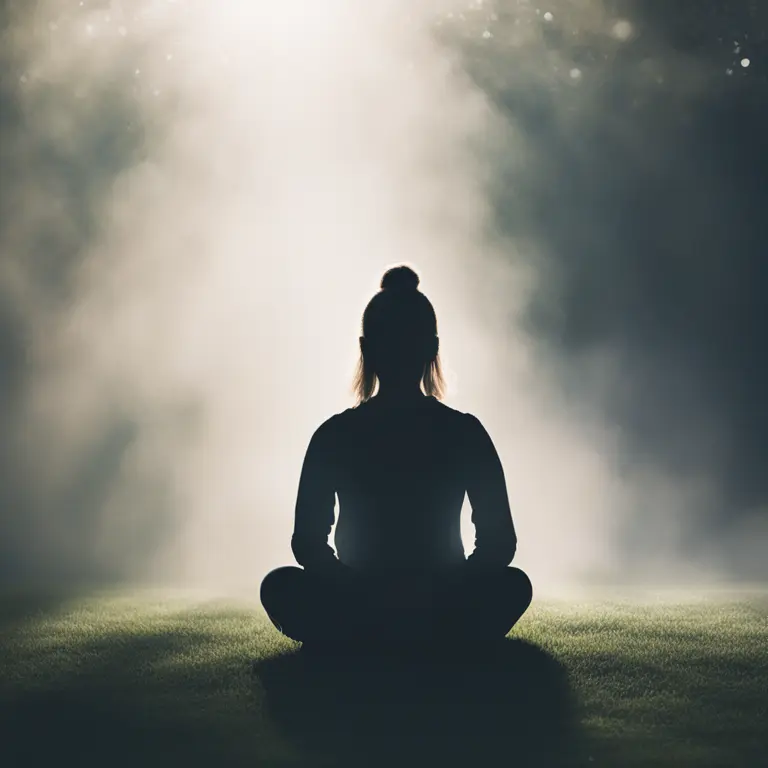
Sleepiness During Meditation: A Common Experience
Discover why meditation can often lead to feelings of sleepiness, and how this normal response can be managed for a more effective practice.
article by Hina Kurosawa
The Nature of Meditation and Relaxation
Meditation is widely recognized for its relaxation and stress reduction benefits. It involves focusing the mind and slowing down the thought processes, which often leads to a state of deep relaxation. When the body enters such a relaxed state, it can sometimes interpret this as a signal to prepare for sleep. This natural association between relaxation and sleepiness is one reason why beginners and experienced practitioners alike may find themselves feeling drowsy during meditation. The alignment of the body’s relaxation response with the onset of sleep is rooted in our biological makeup, making sleepiness a common and predictable outcome during the initial stages of a meditation practice.

The Role of Breathing in Meditation Sleepiness
A key component of most meditation techniques is the deliberate focus on one's breathing which often becomes slower and deeper as a person relaxes. This form of controlled breathing increases the level of carbon dioxide in the blood, which can lead to a decrease in brain activity and induce a state of lethargy or sleepiness. As much as this is a beneficial aspect of meditation for calming the mind, it can be a hindrance for those struggling to remain awake. Understanding and adjusting one's breathing patterns during meditation can help mitigate the sleepy effect and promote a more alert state of mind.

Circadian Rhythms and Their Impact on Meditation
Our circadian rhythms, or internal body clocks, can also play a part in why meditation makes some individuals sleepy. In 2024, it is well-known that if we meditate at times when our bodies are naturally winding down or preparing for sleep, such as late evening or right before our usual bedtime, we may find it more difficult to stay awake. Aligning meditation practice with a time of day when we are naturally more alert, such as in the morning or early afternoon, can help offset the propensity for sleepiness.

Psychological Aspects of Meditation and Sleep
In the modern fast-paced world of constant stimuli, our brains have become accustomed to being on high alert. When we meditate, we allow the mind to transition from a state of active engagement to one of passive observation. As we reduce sensory input and mental activity, the brain can sometimes misinterpret this quiet, contemplative state as a signal to enter the early stages of sleep. Additionally, for those who lead particularly stressful lives, the quiet moments of meditation might be the first real chance the body gets to relax, which could explain why it swiftly moves toward sleep.

Finding Balance in Meditation Practice
Developing a balanced meditation practice involves understanding individual responses to the process and making necessary adjustments. This may include sitting in a more upright position, meditating in a well-lit room, or using techniques that involve more mental engagement, such as mantra repetition or active visualization. It's important to create conditions that are conducive to focus and presence rather than sleep. As meditation becomes a more integrated part of our lives beyond 2024, personalized practices will become increasingly significant in maintaining the fine line between relaxation and sleepiness.
Tips for Preventing Sleepiness
To prevent sleepiness during meditation, practitioners are encouraged to try various approaches. One could try meditating at different times of the day, adjusting sitting positions for optimal alertness, focusing on maintaining steady, moderate breathing, and keeping the meditation space adequately lit. Additionally, incorporating walking meditation or engaging in a brief bout of physical activity prior to sitting down can increase circulation and mental alertness. Over time, as one becomes more adept at identifying the precursors to sleepiness during meditation, these strategies can be fine-tuned for an individual and effective practice.
Published: 1/14/2024
Modified: 1/15/2024
More predictions
Come back here soon to learn more about yourself and your future


Calming the Storm: Mindfulness Meditation for Anger
Discover how mindfulness meditation can be a powerful tool for anger management, promoting inner peace and emotional balance.


Harmonizing Life with Meditation Mantras
Delve into the transformative power of meditation mantras to align mind, body, and spirit for a harmonious existence.


Mindfulness Meditation Basics for First Graders
Introducing foundational mindfulness meditation practices to instill calm and focus in first-grade students.